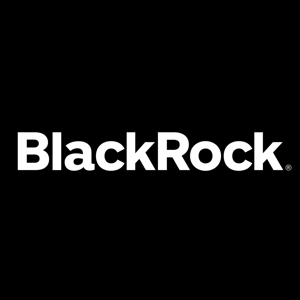
Grygo is the chief content officer for FTF & FTF News.
With $10 trillion in assets under management (AUM), BlackRock is generally considered one of the world’s top asset managers. So, when it sends a comment letter about a regulatory matter, people tend to pay attention.
Earlier this month, BlackRock sent its list of suggestions to the SEC about the regulator’s push for new regulation that would require public companies to report more details about the climate-related risks that could “have a material impact on their business, results of operations, or financial condition,” according to the SEC.
During the review process, BlackRock asked the SEC to rethink key aspects of its proposed disclosure requirements to avoid onerous impacts upon U.S. capital markets, according to the letter.
“We are concerned that the impact of onerous disclosure requirements on U.S. public issuers could (i) encourage U.S. public issuers to sell assets that could harm their climate-related disclosure to opaque private issuers,” according to the BlackRock letter.
The SEC’s proposals could “(ii) incentivize such assets to stay in the hands of opaque private companies, (iii) disincentivize initial public offerings by private companies or U.S. listing by non-U.S. companies, thereby potentially excluding public market investors from accessing pockets of U.S. capital markets and capital formation processes, and (iv) discourage merger activity between publicly listed U.S. companies and either private U.S. companies or non U.S. companies,” according to the letter. “Therefore, we urge the Commission to consider ways to extend greater transparency of climate-related considerations to U.S. private issuers.”
Issued in early March, the proposed SEC rules focus on the “E” in Environmental, Social, and Governance (ESG) investing, and would require SEC registrants to provide investors with “certain climate-related disclosures in their registration statements and periodic reports,” SEC officials say. “The required information about climate-related risks also would include disclosure of a registrant’s greenhouse gas emissions, which have become a commonly used metric to assess a registrant’s exposure to such risks.”
The SEC is also arguing that the “proposed disclosures are similar to those that many companies already provide based on broadly accepted disclosure frameworks, such as the Task Force on Climate-Related Financial Disclosures [TCFD] and the Greenhouse Gas Protocol [GHG].”
BlackRock is onboard up to a point.
 “In a number of places touching on the liability and materiality aspects of U.S. securities law, we suggest the SEC adopt a different approach. Our suggested approach aligns more closely with TCFD and, we believe, is more likely to deliver comparable, high-quality climate-related disclosure for investors,” according to the BlackRock letter, which also encourages the SEC to embrace global standards efforts such as the International Sustainability Standards Board (ISSB).
“In a number of places touching on the liability and materiality aspects of U.S. securities law, we suggest the SEC adopt a different approach. Our suggested approach aligns more closely with TCFD and, we believe, is more likely to deliver comparable, high-quality climate-related disclosure for investors,” according to the BlackRock letter, which also encourages the SEC to embrace global standards efforts such as the International Sustainability Standards Board (ISSB).
Here are BlackRock’s main suggestions:
- “Stay aligned with the TCFD framework,” urges BlackRock. The start of disclosures “such as the detailed financial statement disclosures in the SEC proposal, that go beyond the TCFD framework would have limited value to investors. They also would heighten compliance costs and reduce the ability to compare across companies and regions;”
- “Limit liability where methodologies are still evolving,” BlackRock says, noting that “disclosures that are based on estimates and evolving methodologies in issuer annual and quarterly reports, which have heightened levels of liability, will likely result in less useful data being developed and disclosed to investors.”
- “Maintain established standards of materiality,” says the money manager. “Departure from the well-established materiality standards in annual and quarterly financial reports, in certain areas of the SEC proposal, could obscure what information is material;”
- “Avoid disincentives for robust disclosure,” BlackRock notes. “The SEC’s premising disclosure requirements on the adoption of transition plans, scenario analyses, and climate-related targets and metrics could potentially discourage adoption of these analytical and planning measures and thereby delay greater transparency on how companies are managing climate-risk.”
- BlackRock wants the SEC to “implement a flexible framework for continued evolution of GHG emissions disclosures.” The firm also wants the regulator to adopt “a flexible approach to rulemaking based on ‘comply or explain,’ rather than mandating complete Scope 3 disclosures in annual and quarterly reports, will provide companies the opportunity to develop the resources necessary to comply with industry standards and best practices as they emerge. Therefore, while we are generally supportive of the SEC’s proposal to require disclosure of Scope 1 and Scope 2 emissions, we respectfully disagree with the Commission’s proposed approach to mandating disclosure of Scope 3 emissions in annual and quarterly reports.”
Ultimately, BlackRock and the SEC agree that the goal should be a “robust framework” for climate disclosures. But the firm wants the regulators to be more flexible in their rulemaking.
“We believe that our recommendations … will allow the Commission to strike the appropriate balance between providing issuers with flexibility and establishing a framework that provides market participants with the information they need to evaluate a company’s climate-related exposure,” BlackRock officials say.
The full text of the BlackRock letter can be found here: https://bit.ly/3u8wcpP
Need a Reprint?